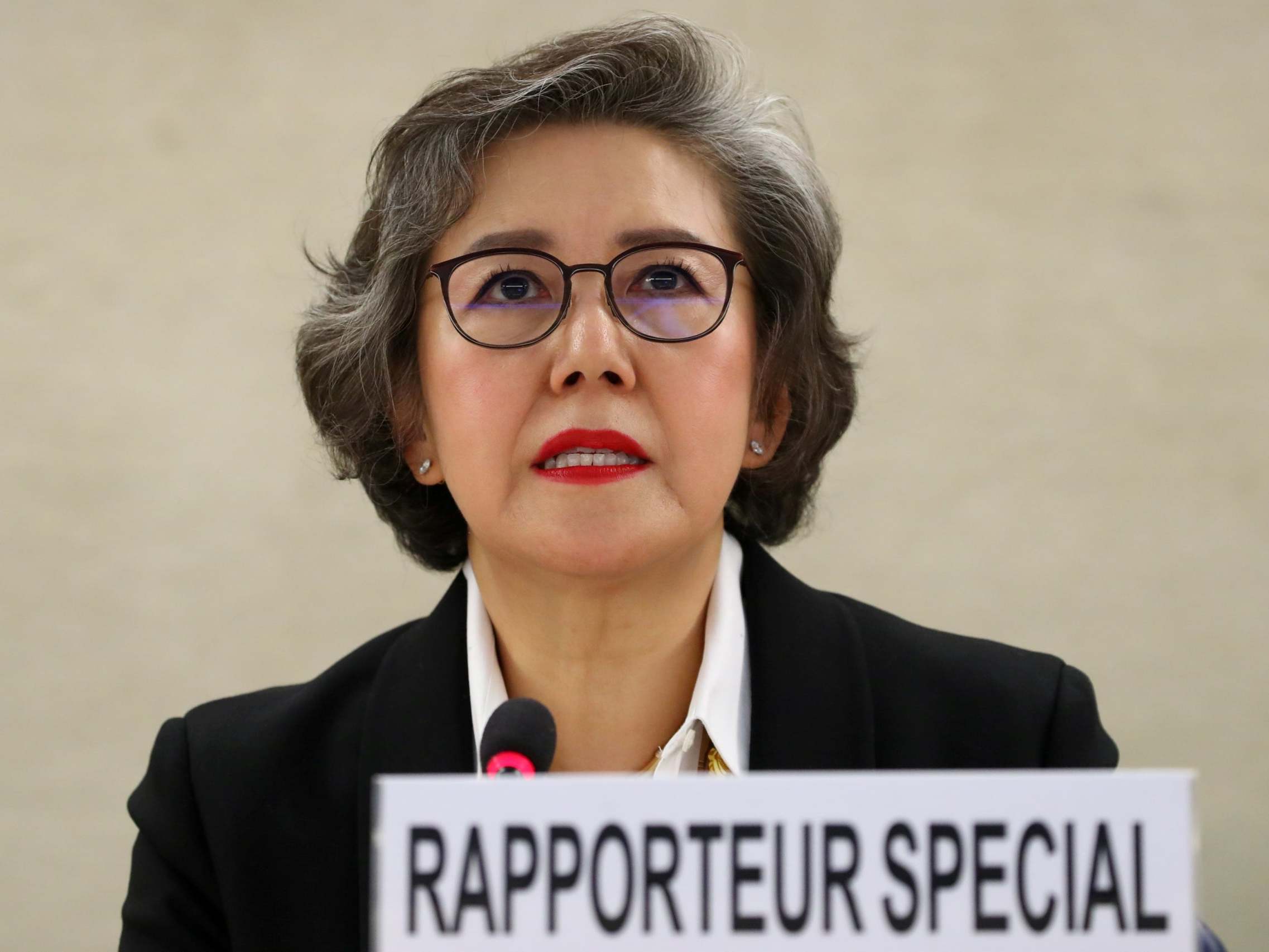Coronavirus: Myanmar military ‘emboldened’ by pandemic to commit ‘crimes against humanity’, says UN expert
'Its conduct against the civilian population of Rakhine and Chin States may amount to war crimes and crimes against humanity'

The Myanmar military is using special extended powers meant to help mitigate the spread of Covid-19 to carry out “war crimes”, said a United Nations special rapporteur.
Human rights expert Yanghee Lee called for an investigation into the situation in Myanmar’s Rakhine and Chin States, just before she finished her tenure in the position.
Myanmar has imposed movement restrictions to curb the spread of coronavirus, shutting down large public events, cinemas and some tourist sites until 15 May. Residents in Yangon are ordered to stay home except to go to work and must wear masks and carry ID at all times when outside their homes.
Ms Lee accused the military of targeting civilians in the Rakhine state, home to ethnic Rakhine people who are predominantly Buddhist, as it clashed with a separatist militant group, known as the Arakan Army.
She said in a statement: “While the world is occupied with the Covid-19 pandemic, the Myanmar military continues to escalate its assault in Rakhine State, targeting the civilian population.”
The military, known locally as the Tatmadaw, have ignored calls for a ceasefire and are “systematically violating the most fundamental principles of international humanitarian law and human rights”, she added.
“Its conduct against the civilian population of Rakhine and Chin States may amount to war crimes and crimes against humanity… For decades, its tactics have intentionally maximised civilian suffering; we all know what they did to the Rohingya in 2017.”
In an interview with CNN on Tuesday, Ms Lee said the assailants burned houses, attacked a monastery and tortured residents.
“And then we find bodies that have been decapitated, these are Rakhine people. I am calling the situation crimes against humanity and war crimes. These are the highest, the most heinous and gravest crimes of international law,” she said.
A new coronavirus committee was appointed in March to enforce the new measures, giving the military – which has the powers to control borders, defence and home ministries – even more authority over residents.
The new powers are “emboldening” the Tatmadaw, said Ms Lee. “Already they have a strong arm, and now if they have these additional powers in the name of enforcing or preventing the spread of the pandemic, then they are really given another layer, a greater, higher level of power to do what they’ve done always in the past few decades, but in a more severe and horrific manner.”
A mobile internet shutdown, imposed in June 2019, has not stopped journalists from passing information on the ground to the UN, but Ms Lee said ethnic Rakhine journalists have gone into hiding out of fear.
She called for the shutdown to be lifted and for the media to be allowed to operate freely “in order to report on these critical issues”.
“I also call on the United Nations to step up its efforts to protect civilians in Rakhine and Chin and ensure that there is not another systemic failure like in 2017.”
In 2017, hundreds of thousands of Rohingya Muslims fled over the border into Bangladesh to escape rape, murder and the destruction of entire villages in the Rakhine state at the hands of the Burmese military.
At the time, the UN called the violence “a textbook example of ethnic cleansing” and the Rohingyas’ plight became one of the biggest crises in the region.
The country’s de facto leader, Aung San Suu Kyi’s office said in a statement on 21 April that the government was “deeply saddened to learn of civilian casualties in Rakhine and Chin States”, but added the military is fighting against the “terrorist” Arakan Army.
It said it will “continue with efforts to take the peace process”.
According to data by Johns Hopkins, Myanmar has recorded just 150 cases of Covid-19, with six deaths.
Join our commenting forum
Join thought-provoking conversations, follow other Independent readers and see their replies
Comments
Bookmark popover
Removed from bookmarks